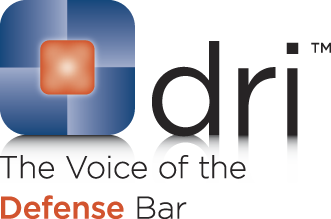 The claimant’s counsel makes a policy limit demand. After receiving authority to settle for the liability limits, you tender the policy limit and your company’s standard Release. Claimant’s counsel rejects the Release. Instead, counsel insists on a Covenant Not to Execute. Why would the attorney do that?
The claimant’s counsel makes a policy limit demand. After receiving authority to settle for the liability limits, you tender the policy limit and your company’s standard Release. Claimant’s counsel rejects the Release. Instead, counsel insists on a Covenant Not to Execute. Why would the attorney do that?
This post will hopefully give you more information regarding the distinctions between these two types of settlement documents and the advantages and disadvantages of each.
What is the distinction between a covenant and a release?
Both releases and covenants are contracts under Nevada law. However, a release extinguishes a plaintiff’s cause of action and the insured’s liability. If the claimant signs a release, the claimant cannot subsequently sue the insured. This is the settlement document used in most claims and is the preferred document to protect the insured.
In contrast, Covenants generally allow the claimant to sue the insured even after the insurance company makes payment of the limits. A Covenant protects the insured because the claimant promises not to pursue the insured’s personal assets, protecting the insured from execution and garnishment should a judgment follow in a subsequent lawsuit. However, that protection is not complete.
Why would a Plaintiff’s attorney want a Covenant instead of a Release?
There are many reasons why a Claimant’s attorneys might want a Covenant instead of a Release. The main reason is that the claimant’s attorney intends to pursue a UIM claim against the claimant’s own carrier AND against your insured. By placing your insured as a named party in the UIM suit, the claimant’s attorney might be able to defeat federal diversity jurisdiction.
What are the benefits and risks of a covenant versus a release?
A Covenant not to execute provides your insured less protection than a Release. Even if the Covenant protects the insured’s personal assets from execution and seizure, the insured would still face the adverse effects of have a judgment.
For example, while language precluding claimant from recording or reporting the judgment may be included in the covenant, the language may not completely protect a client from the effects of the judgment. Even if the judgment is not recorded or reported, an outstanding judgment may negatively impact an individual or business credit report. Specifically, applications for credit and due diligence documentation for business transactions frequently require disclosure of unreported judgments against the business and/or the principals.
Furthermore, unlike a release, liability is not terminated by a covenant. Because liability is not extinguished, an insurance company’s duty to defend is not extinguished. Thus, company may well be obligated to retain defense counsel to defend, or at least consult with the insured.
Does a Covenant satisfy the insurer’s duty to settle?
Most insurance policies obligate the insurer not only to defend, but also to settle. Case law in a majority of jurisdictions says that getting a Covenant is enough to satisfy this duty. Furthermore, most courts permit insureds to protect themselves from excess exposure by taking Covenants Not to Execute from the claimant where the insurer will not provide defense or refuses reasonable settlement.
How can a covenant can be incorporated into a settlement?
Where the claimants counsel offers a Covenant in exchange for protection against excess exposure, the pros and cons of a covenant must be addressed and understood thoroughly by the insured and insurer. As noted above, in most circumstances language can be included in the covenant to minimize or eliminate any potential risks to the insured and insurer regarding the liability and the judgment issues.
Many times, claimant’s attorneys will insist as part of the Covenant that the insured forego any defense of the suit. This requirement gives the claimant a leg up toward seeking a judgment against the UIM carrier. This factor also needs to be considered, addressed and approved by the insured.
If you have questions about covenants, releases or on any other issues related to Nevada Insurance, Coverage or Trucking Law, please be sure to contact Aileen Cohen at Bauman Loewe Witt & Maxwell, 702-240-6060. Or send an email to acohen@blwmlawfirm.com
 Follow
Follow Email
Email


